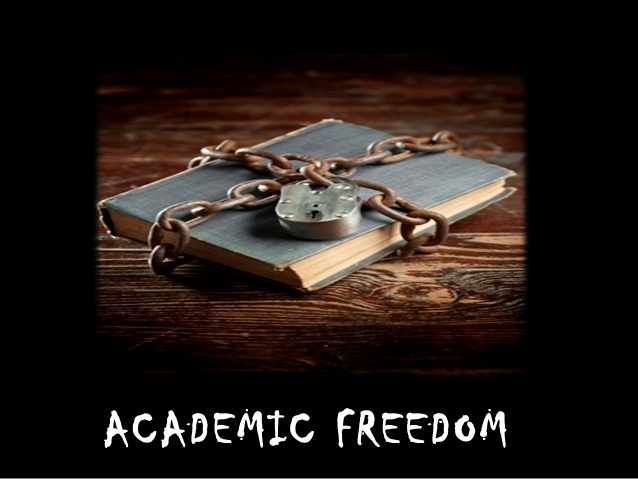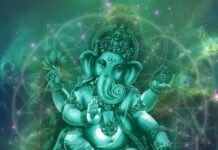Among the left-liberal intellectuals, this has been a frequently used term in India for quite some time. The people, who use it, find it generally convenient not to explain its connotation. This way they enjoy the advantage of suggesting that a dreadful attempt is being made to choke the voice of the intellectual class but do not feel the necessity to examine if the case is really of the suppression of academic freedom or merely a gambit to harass or bring bad name to, the ruling power, especially if that power is not showering it with favours.
By Dr Dilip K. Chakrabarti
It might be useful to discuss the issue in some detail. First, the issue of academic freedom is valid only in the context of academic disciplines which are, within the precincts of the universities and comparable teaching and research institutions, constantly in the process of examining the old ideas and exploring the new ones. Challenging the received wisdom, as has been laid down in the statute book of a university (of which this author is a member), is among the duties of a university level teacher and researcher. All individuals with this responsibility must enjoy complete freedom of thought within the context of their disciplines. There is no problem with this, but what happens when any such individual transgresses the limit of his or her discipline and ventures in fields which professionally do not concern them? As general members of society they may express their opinion in various public matters but while doing so, they cannot have the advantage of academic freedom. They in such cases must be bound by the laws of the country and should not expect to be treated with kid gloves by the authorities because they happen to be academics.
As things stand, Indian academics enjoy an extraordinary range of freedom. The frequency with which Indian university employees go on strike disrupting productive academic hours without drawing any penalty to themselves is unbelievable in the context of the First World universities where people are welcome to go on strikes but the normal routine activity will not be disrupted and the striking employees will be required to forfeit their salaries for the relevant period. On the other hand, the democratic rights and procedures which are in place in the universities are never compromised, assuring to all concerned that whatever is happening around them in the university is happening in a very easily identifiable and properly recorded way. If you are the big Chief, you can get your way but never by taking liberties with the rules, regulations and procedures. The people moaning over the loss of academic freedom in our universities are not agitated over the fact that the democratic pillars of our academic structure —-departmental committees, academic councils, senate, syndicate or executive council, etc — have been subject pitiably to the dictates of the Vice-Chancellors, with the general teachers kowtowing to him for petty personal benefits. Nobody complains about the loss of academic freedom in these cases.
The author knows of at least one case in a Central University where a senior teacher with impeccable academic background has not been allowed to join his department after the period of his leave was over, because his application for the job for which he was on leave, was not with the permission of the university authority. It did not matter that in his department he was the only one to possess a wide range of international experience. In the same university, archaeology teachers are not entitled to leave for doing fieldwork, although such fieldwork has to be considered an integral part of his academic duty. After all, what matters in the universities and research institutions in India is the super-size ego of the people in positions of power. Any invocation of the concept of academic freedom must be some kind of joke to them. Personally, one has always been surprised by the undercurrent of thuggery of various kinds running through our academic institutions. It is not uncommon for a teacher or researcher to be hounded out of the employing institution if he or she falls foul of the authority. On the other hand, trying to toe the line of the authority is about the only way a teacher or researcher employees can stay peacefully in their jobs and get promotions.
It is all, of course, a mass of contradictions in the Indian university set-ups. As is well-known, after the demolition of the Babri mosque in 1992 a section of Indian and international intellectuals went berserk over the possible end of Indian secularism and democracy. The reason this issue is being raised is that these opinions were all expressed as general public opinions and not as something related to their academic duties. The trend still continues and one can cite the ‘Indian issue’ of an international journal named Public Heritage. In this issue, one Indian university teacher forcefully tries to cast doubt on the legality of the Supreme Court’s Ayodhya judgement, although the writer is only an archaeologist who is not qualified to discuss the legality of anything. Her opinion cannot fall under the label of her ‘academic freedom’. In the same context it is worthwhile to draw attention to the published opinion of a French lady who also claims in a journal publication that the Archaeological Survey of India wilfully bolstered what is labelled Hinduttva archaeology. One does not know whether the Indian university lady writing for Public Heritage and the aforesaid French lady are connected or not, but they both spring apparently from the same intellectual roots, suggesting an unholy nexus between a section of the Western scholarship and the left-liberal, so-called ‘secular scholarship’ of India. Whether the present Government of India should allow the current situation to continue unimpeded depends on the Government of India but certainly some restrictive measures are called for.
Among other things foreign collaborations in archaeology should be restricted only to the Archaeological Survey of India as the collaborating Indian institution because it is a government body and its officers are subject to government regulations and restrictions whereas the Indian university teachers suffer from no inhibitory factor of this kind and do not hesitate to give air to views which are not in the best national interest. Here archaeology is cited only as an example. Academics enjoy the full freedom of expressing their professional views in their own professional matters but once they venture in areas which are of no direct relevance to their profession —- criticism of the legality of the Supreme Court’s Ayodhya judgement, for instance– they cannot invoke the concept of ‘academic freedom’. The legality of this concept and the contexts in which it may be valid should be closely examined by people who understand such things far more than the present author does. However, it cannot be allowed to camouflage skulduggery of all kinds including various anti-national positions in the academia. There is also no reason to support the general Indian custom of not allowing the police in the campus without invitation by the authority. This is a ridiculous form of ‘academic freedom’.
This article first appeared in www.vifindia.org and it belongs to them. The author is a research associate with VIF.








